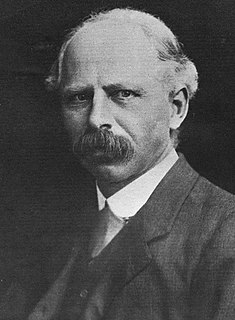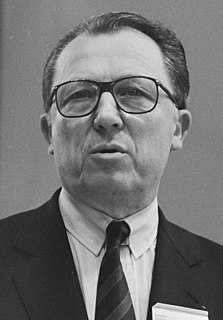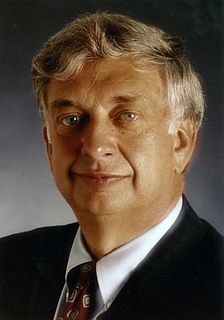A Quote by Robert Heilbroner
Smith, as we have said, was not the proponent of any one class. He was a slave to his system. His whole economic philosophy stemmed from his unquestioning faith in the ability of the market to guide the system to its point of highest return. The market — that wonderful social machine — would take care of society's needs if it was left alone. "Consumption is the sole end and purpose of all production," he wrote.
Related Quotes
The market steers the capitalistic economy. It directs each individual's activities into those channels in which he best serves the wants of his fellow-men. The market alone puts the whole social system of private ownership of the means of production and free enterprise in order and provides it with sense and meaning.
The organizer of industry who thinks he has 'made' himself and his business has found a whole social system ready to his hand in skilled workers, machinery, a market, peace and order - a vast apparatus and a pervasive atmosphere, the joint creation of millions of men and scores of generations. Take away the whole social factor, and we have not Robinson Crusoe with his salvage from the wreck and his acquired knowledge, but the native savage living on roots, berries and vermin.
The market economy is the social system of the division of labor under private ownership of the means of production. Everybody acts on his own behalf; but everybodys actions aim at the satisfaction of other peoples needs as well as at the satisfaction of his own. Everybody in acting serves his fellow citizens.
Consumption is the sole end and purpose of all production; and the interest of the producer ought to be attended to only so far as it may be necessary for promoting that of the consumer. The maxim is so perfectly self-evident that it would be absurd to attempt to prove it. But in the mercantile system the interest of the consumer is almost constantly sacrificed to that of the producer; and it seems to consider production, and not consumption, as the ultimate end and object of all industry and commerce.
Among other grand achievements, F. A. Hayek had a remarkable career pointing out the flaws in collectivism. One of his keenest insights was that, paradoxically, any collectivist system necessarily depends on one individual (or small group) to make key social and economic decisions. In contrast, a system based on individualism takes advantage of the aggregate, or 'collective,' information of the whole society; through his actions each participant contributes his own particular, if incomplete, knowledge-information that could never be tapped by the individual at the head of a collectivist state.
We are social animals and we have a hierarachical and unequal society. It is a class society, and the class system creates and perpetuates the social role of consumption. We display our class membership and solidify our class positioning in large part through money, through what we have. Consumption is a way of verifying what you have and earn.
What type of new economical system can organize this system? There is another sector in our life, that we rely on every single day, that are absolutely essential: the social commons, the social economy. It is all the activity we engage in to create social capital. It doesn't create capital market. Social commons is growing faster than the market place. It is growing faster than the market place. The social commons include any activity that is deeply social and collaborative.
There is no other complex field in our society in which do-it-yourself beats out factory production or market production. Nobody makes his or her own car. But it is still the case that parents can perform the job of educating their children [homeschooling], in many cases better than our present education system.
It is preferable to regard labour, including, of course, the personal services of the entrepreneur, and his assistants, as the sole factor of production, operating in a given environment of technique, natural resources, capital equipment and effective demand. This is why we have been able to take labour as the sole physical unit which we require in our economic system, apart from units of money and of time.






























